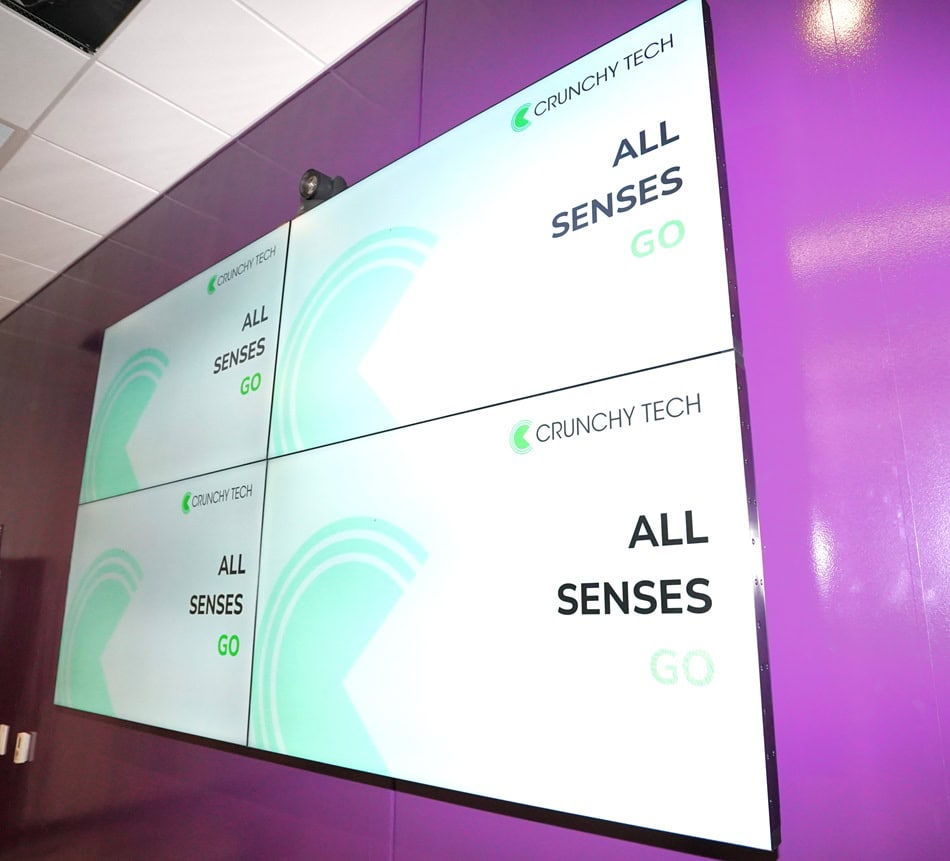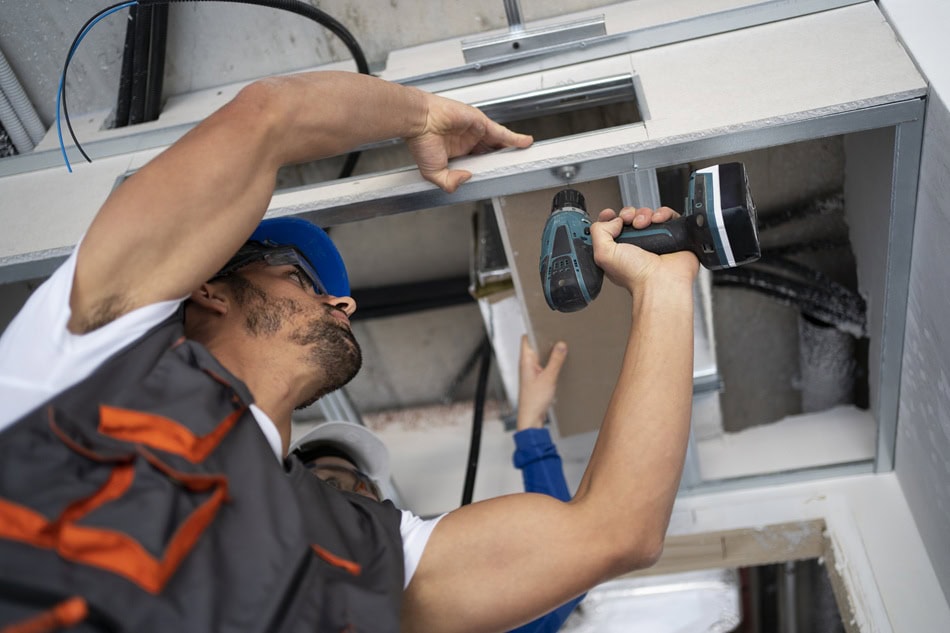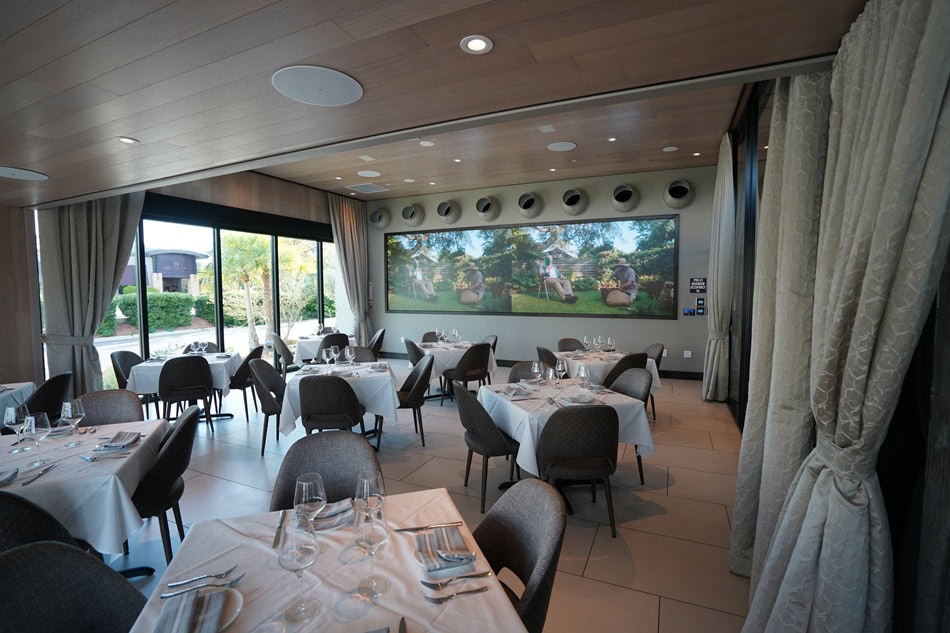The commercial audio-visual company you choose can make or ruin how your business communicates and engages. A reliable AV partner builds systems that connect people with ease and create great, lasting impressions. The wrong one on the other hand leaves you with frustrating fixes and technology that feels outdated far too soon.
This detailed post walks you through 20+ tips on how to choose the right commercial AV company, grouped into key considerations such as demonstrable qualities that separate experts from amateurs, common mistakes to avoid, and red flags to watch out for.
Why a Careful Selection of the Right AV Partner Matters
A skilled partner can give you reliable systems and long-term value, while a poor choice for AV integration often, if not always, results in wasted budgets and daily frustrations.

Think long-term, not one-time
Commercial AV systems are an investment meant to endure for years. Deciding to cut corners at the start only leads to higher costs later through reoccurring repairs and/or upgrades. A dependable partner designs with scalability in mind. Your audiovisual systems should ideally adapt as your business grows instead of forcing costly overhauls.
Shape the experience of customers and employees
Your audiovisual environment directly affects how people interact with your commercial space, from a crisp sound system in a retail store to a frictionless conferencing setup in a boardroom. The best commercial AV company for your specific needs understands how to blend technology with atmosphere for both staff and customers to feel the benefit.
Avoid the hidden costs of poor integration
Choosing the wrong company may look cheaper on paper but brings hidden expenses. Common problems include:
- Incompatible equipment that needs replacing
- Systems that require excessive staff training to operate
- Recurring downtime that disrupts business operations
- Lack of ongoing support that leads to unexpected service bills
Gain an advantage in a saturated market
Businesses that invest in thoughtful AV design stand apart. In hospitality, for one, an immersive entertainment experience can keep guests returning.
In corporate spaces, reliable conferencing systems can foster effective communication, enhance employee productivity and speed up decision-making. A capable AV company helps turn your spaces into assets that strengthen your brand.
ALSO READ: Audio-Visual Technology Solution Companies Create Impactful Spaces
4 Main Factors to Consider Before You Start Searching
Before comparing proposals or reviewing portfolios, know what you actually need from your AV systems.

1. Match goals with your AV needs
Start by asking what you want your AV technology to accomplish. Are you aiming to improve team collaboration? Do you want to create a more engaging retail experience? Or are you putting a premium on delivering presentations without technical hiccups?
Each goal demands a different approach. Clarifying these early assures your AV service partner knows what outcomes matter most.
2. Scope the size and complexity of the project
The needs of a single office conference room are different from those of a nationwide chain of stores. Smaller projects may only require straightforward installation.
Conversely, large-scale rollouts need advanced planning, system standardization and centralized management. You need to understand where your project falls on that spectrum to help you gauge what level of expertise and resources your professional AV partner must have.
3. Set a realistic budget with room for growth
Budgets guide decision-making, but they shouldn’t box you into short-term fixes. A good approach is to allocate a budget that covers today’s needs while still leaving enough room for upgrades or expansions.
For example, you may not need video walls now, but wiring your infrastructure to support them in the future saves sizable costs later. A reputable audio and visual company will help you plan for both current use and long-term possibilities.
4. Consider the future of work and technology
The workplace post-COVID has changed dramatically. Audio visual solutions need to keep pace. Hybrid meetings, touchless collaboration tools and immersive customer experiences ceased to be optional in many industries.
Thinking ahead about how you want your spaces to function in two, five or even ten years ensures you don’t invest in tech that becomes obsolete too quickly.
Top 5 Qualities of a Commercial Audio Visual Company
Some AV firms specialize in one-off installations. Others act as long-term partners capable of supporting complex projects. Identifying what qualities set a great company apart will help you filter out underqualified providers and zero in on those that can deliver.
1. Look for proven industry experience
Experience shows in the way an AV company handles challenges. A partner with years in the field has likely seen AV projects similar to yours and understands how to avoid common pitfalls.
They know which solutions work well in various business environments and can anticipate issues before they happen. Don’t ever hesitate to ask how long they’ve been operating and what types of industries they’ve experienced serving.
2. Review their portfolio and case studies
A strong portfolio offers more insight than any sales pitch. Look for examples across different environments and study how those systems perform in practice. Case studies also reveal how the company approaches problem-solving, project management and post-installation support.
IF the work looks repetitive or uninspired, that’s your signal to keep searching.
3. Expect scalable and customized AV solutions
Every space has quirks and every business has distinct objectives. A worthwhile audio-visual solutions partner doesn’t push a prepackaged system. Rather, they design around your space, your goals and your budget.
To reiterate, scalability is equally important. Your system should not force you into exorbitant overhauls every few years. A tailored approach is the mark of a company that listens.
4. Check technical expertise and certifications
The best AV companies invest heavily in training their teams. Look for certifications or manufacturer-specific training that proves technicians know the equipment inside and out.
Credentials aren’t JUST pieces of paper. They signify that the team follows industry standards and keeps pace with fast-changing technology.
5. Evaluate customer service and ongoing support
The relationship doesn’t end when the system is turned on. Strong partners offer clear service-level agreements, responsive support teams and preventative maintenance services.
Ask what their average response times are, how they handle emergencies, what type of ongoing training or documentation they provide. A company’s willingness to stand behind their work is as indispensable as the AV installation itself.
5-Step Process of Working with a Top AV Integrator
Working with the right AV company is a structured process that takes your vision from concept to long-term reliability. Here’s how understanding how a strong partner operates can give you a clear benchmark when weighing up on different AV providers.

1. Start with discovery and consultation
The first stage should feel like a conversation. A good AV company asks questions about your goals, challenges and day-to-day onsite. They want to know how you’ll use the system, who will be operating it, what frustrations you’ve had with past setups. This step builds the foundation for solutions that actually fit your specific requirements.
2. Move into planning and design
Once they get to know your objectives, the company translates them into a technical plan. This includes room layouts, equipment recommendations and timelines for installation. It should balance function with aesthetics and be transparent about costs. Diligent planning also prevents costly surprises later.
3. Expect careful installation and project management
An experienced AV company manages the process end-to-end by coordinating equipment delivery, installation and testing. They also communicate progress regularly and see to it that you’re not left guessing. A structured installation avoids downtime that could disrupt your business.
4. Learn through training and handover
Even the best systems fall through if no one knows how to use them. A trustworthy AV partner spends time training your staff, walking through control systems and providing clear documentation. This step ensures adoption and confidence, rather than leaving employees confused or hesitant.
5. Rely on ongoing maintenance and support
The partnership continues, as it should, after installation. Preventative maintenance, software updates and on-call support keep your system reliable.
The best audio visual companies offer service-level agreements that guarantee timely responses and keep operations running like clockwork. This commitment distinguishes professionals from firms that disappear once the final invoice is paid.
5 Common Mistakes When Selecting an AV Company
The process of selecting an AV partner can feel overwhelming and it’s easy to make choices that look good in the moment but create long-term problems.
Knowing these most common mistakes ahead of time will help you avoid them and choose a company that supports your business for years.
Mistake 1: Focusing only on the lowest bid
It’s almost always tempting to go with the cheapest proposal, especially when budgets are tight. The problem is that low bids tend to use inferior equipment, skip proper planning or underestimate installation time. The initial savings usually get erased by repair costs and replacements.
Mistake 2: Overlooking scalability and future needs
Many businesses only think about today’s requirements. They buy a system that works now but can’t adapt when their teams grow or when hybrid work expands. A short-sighted AV setup forces expensive upgrades down the line.
Mistake 3: Ignoring post-installation support
Without ongoing maintenance, software updates and troubleshooting, even the best systems get compromised. Choosing a provider with no structured support plan is a costly mistake that leaves businesses scrambling when issues arise.
Mistake 4: Skipping research into credentials and training
Some companies send technicians with limited training who rely chiefly on trial and error. What this often leads to is sloppy integration and inconsistent performance. Checking for certifications and ongoing staff education hands down helps you avoid these pitfalls.
Mistake 5: Failing to ask for references or case studies
An AV company might talk a good game, but their track record tells the real story. If you don’t review case studies or speak with past clients, you risk hiring a team that hasn’t proven itself on projects like yours. Strong references give you confidence that promises will be delivered.
5 AV Company Red Flags to Watch Out For
Needless to say, not every AV company is worth your trust. You may encounter some who will brag about capabilities they don’t have, while others hide gaps that only become clear once the project is underway. Pay attention to these early warning signs to save you from wasted time and systems that never work as sworn.

Red flag #1: Proposals that are vague or generic
A tried-and-tested audio-visual partner will tailor their proposal to your project. If you receive a cookie-cutter plan with little detail about your space, goals or budget, it’s a telltale sign the company hasn’t invested the time to understand your needs.
Red flag #2: No clear warranty or support terms
Strong companies are transparent about what happens after installation. If you can’t get a straight answer on warranties, AV service levels or maintenance options, consider it a red flag. Lack of clarity usually points to limited or irresponsible support.
Red flag #3: Few or no manufacturer partnerships
The best AV integrators work closely with leading equipment manufacturers. These relationships give them early access to training, better pricing and proven solutions. If a company avoids naming brands or lacks certifications, they may not have the necessary proficiency to deliver high-quality systems.
Red flag #4: Selling products instead of solutions
Be cautious of companies that push specific equipment without asking about your business objectives. Good integrators design systems around your needs, not around whatever products they happen to carry. A hardware-first approach will only leave you with technology that doesn’t fit.
Red flag #5: Limited presence or credibility in the industry
If an AV company has little online footprint, no case studies or few client testimonials, it raises questions about their experience. This doesn’t mean newer firms are automatically unqualified, but lack of transparency should make you dig deeper before moving forward.
5 Questions to Ask When Choosing an AV Company
Asking the right questions during the selection process gives you a vivid picture of how a company works and how they’ll support you once the system is in place. These questions are designed to move past surface-level promises and uncover whether the partner is qualified in every sense of the word.
1. Can I see examples of your past work?
A portfolio should include projects same as yours. Reviewing real-world results shows how the company adapts to different industries and spaces. Pay attention to variety; an audiovisual integrator who has only worked on small offices may not be equipped for multi-site hospitality or retail installations.
2. What certifications do your technicians hold?
Look for certifications or training from manufacturers like Crestron, Biamp or Extron. These prove the team has up-to-date technical aptitude and follows industry standards. Without certified staff, you risk inconsistent performance and poor integration.
3. What’s your process for discovery and planning?
A strong AV integration company will explain how they gather information, design systems and coordinate logistics. If they skip this stage or provide incoherent answers, it suggests they may jump straight into installation without understanding your needs. This is often the root of failed projects.
4. How do you handle ongoing support?
Ask about service-level agreements, response times and whether support is provided remotely, on-site or both. An established company should outline preventive maintenance programs and demonstrate how they’ll keep your system running after installation.
5. How do you plan for scalability?
Business needs evolve and technology changes fast. A more-than-capable audio and video integrator should be able to spell out how their solutions can expand or adapt in the future, whether that means adding new conference rooms, supporting hybrid meetings or upgrading digital signage displays as new formats become standard.
Emerging Trends in Commercial AV to Consider
The AV industry doesn’t stand still and businesses that anticipate these changes gain systems that last longer and serve more needs. When choosing a commercial AV partner, it’s worth asking how well they keep up with these emerging trends.
Hybrid and remote collaboration tools
The shift toward hybrid work has made video conferencing, cloud-based collaboration platforms and room systems essential. Tools like Microsoft Teams Rooms, Zoom Rooms and Cisco Webex are being integrated directly into boardrooms and huddle spaces.
A good AV partner is expected to know how to design systems that bridge in-person and remote collaboration seamlessly.
Multi-sensory and immersive experiences
Retailers, restaurants and entertainment venues are turning to experiential AV to capture attention. Video walls, interactive displays, synchronized lighting and directional audio create environments that stand out. These are immersive designs that can increase dwell time and influence buying behavior when executed thoughtfully.
Sustainability and energy efficiency
Energy-efficient displays, LED video walls and smart power management are becoming priorities for businesses conscious of operational costs and environmental responsibility. AV integrators who prioritize sustainable practices can help reduce your long-term energy use while meeting corporate sustainability goals.
AI-powered monitoring and predictive maintenance
Artificial intelligence is entering the AV space through automated system checks, analytics and predictive maintenance. These tools can spot failing components before they break in order to minimize downtime. Certified AV installers who offer AI-powered management can provide a more secure system over its lifespan.
Integration with IoT and building systems
AV is increasingly connected to broader building management platforms. For example, conference rooms that automatically adjust lighting, temperature and blinds when a meeting starts. This seamless integration makes spaces smarter and more efficient, but it requires commercial AV experts who understand both technology and infrastructure.
Why Crunchy Tech Fits the Criteria
When you measure AV companies against the qualities that matter—experience, expertise, customization, long-term support—Crunchy Tech checks every box.
The company has built its reputation on delivering systems that are practical, scalable and designed to last.

A proven history of success
With 15+ years in the AV industry, Crunchy Tech has worked with businesses across hospitality, retail, corporate environments, etc. The company’s portfolio exemplifies its ability to manage both high-profile entertainment venues and professional office spaces.
Read one of our most recent case studies here: Tom’s Watch Bar at National Harbor
A team of highly trained specialists
Crunchy Tech employs engineers, technicians and designers who continuously train on the latest platforms and equipment. This means projects are handled by people who know the technology thoroughly, not by general contractors learning as they go.
Tailored solutions for every client
Rest assured no two projects are approached the same way. Crunchy Tech begins with a discovery process that identifies objectives, technical needs and budget realities. The result is a system designed specifically for the space it serves, whether that’s a single restaurant or a U.S.-wide network of retail locations.
Long-term partnership and support
Crunchy Tech backs its installations with structured service packages that keep systems running reliably. Options range from on-demand support to service-level agreements with guaranteed response times. This approach provides peace of mind and helps businesses avoid the hidden costs that come with reactive maintenance.
Let’s Build the System Your Vision Deserves
Selecting the right AV system in Austin, TX comprises finding a partner that truly understands your specific AV needs, delivers systems that work every day and stays with you long after installation. The difference between a quick fix and a lasting solution boils down to who you trust.
Whenever you’re ready, start a conversation with Crunchy Tech to discuss your challenges and long-term goals. Share your vision and let’s design the system that will turn that very vision into actual existence!
